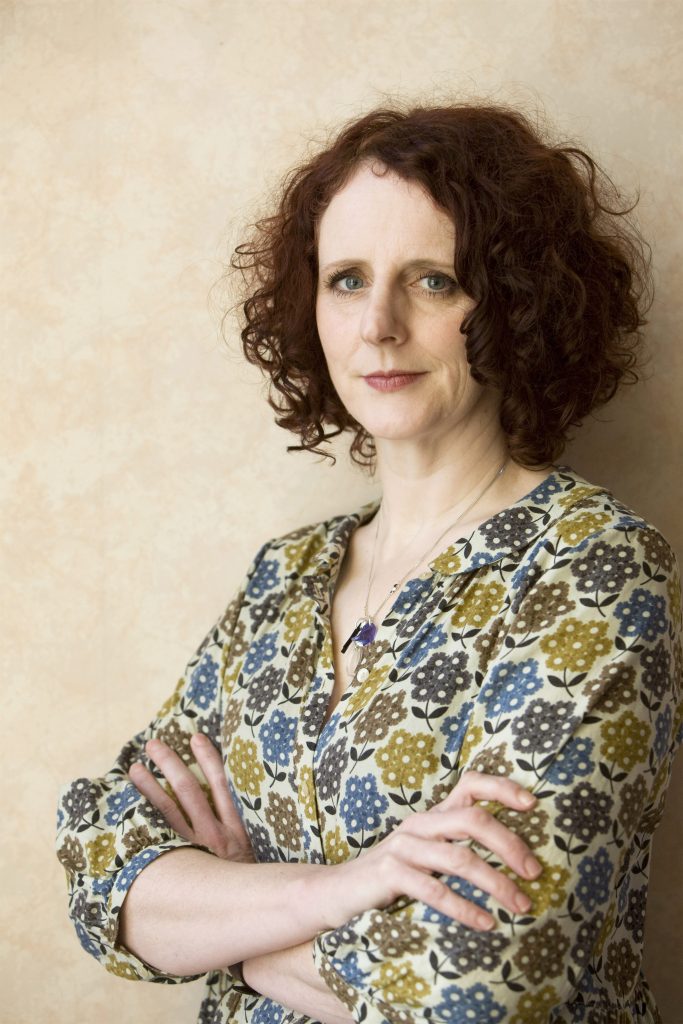 EVENT: Maggie O’Farrell: This Must Be The Place (Tinder Press)
EVENT: Maggie O’Farrell: This Must Be The Place (Tinder Press)
VENUE: Baillie Gifford Tent, Edinburgh International Book Festival
By JEAN WEST

WHEN the already well-loved author Maggie O’Farrell decided to embark on a memoir recently, it was not without a certain foreboding.
The result was I Am, I Am, I Am: Seventeen Brushes With Death (Headline Publishing Company).
It wasn’t as if she didn’t have enough life stories to pad out the chapters. With 17 Near Death Experiences under her belt – including childhood encephalitis and a close call on an international flight – enough to rival the hardiest of cats, she had a deep well of drama to satisfy the most voyeuristic inquiry.
But anxiety about how far she could go without compromising friends and family, meant she resisted anything but a peppercorn advance from publishers, to take the pressure off, as it were, in case she decided to retreat.
Legal necessity forced her to accept £1 up front, which she did not spend until her side of the bargain was kept and the final product, sampled this week on Radio 4, was jacketed and ready for the shops.
She then duly mailed a photograph of a supermarket shopping trolley, which had been unlocked with the shiny coin, addressing it to Headline Publishing Company.
O’Farrell, flame haired, red-lipped, and heeled in sparkly boots, wearing an embroidered peasant top, ignites the Baillie Gifford Tent at Edinburgh International Book Festival, with a subtle assurance and charisma. There is a compelling spontaneity about her: ‘I’m not a huge planner, either in life or fiction,” she insists.
In conversation with Hannah Beckerman, she dives at first into her latest novel, This Must Be The Place, which explores the nuances of married life through the unlikely relationship between Claudette, a reclusive ex-film star, who carries a shotgun to guard her privacy, and Daniel, a linguistics professor – who has deserted his family and has a fairly battered back story himself.
The tale, set in Ireland, and based apparently on a real life encounter in a Soho café that O’Farrell had with a heavily pregnant, film luminary and household name, who, in spite of her fame, ‘looked absolutely miserable,’ allowed her to convey how love can extinguish at any time.

Says O’Farrell: “You often don’t choose the books – the books choose you. I saw this woman…everyone would have known who she was…”
And, as with so many of her books, steeped in disappearing acts, she thought: “If that was me, I would fake my own death and run away. Then I thought it would be a good idea for a novel.”
Through the characters, and their caravan of baggage, she is able to chart how even good marriages can go down the pan if communication falters. And how escape from the day-to-day mundanity that settles in after early intoxication has an appeal of its own.
One of the characters, Niall suffers from chronic eczema, ‘from head-to-foot,’ a tormenting condition afflicting one of O’Farrell’s daughters. In the book it is a metaphor for how we all have times when we cannot stand being in our own skin.
But, perhaps mindful of her own brood, she says children can redeem even disastrous situations: “If you love your children, you are not such a bad person at all. Children can cement a relationship.”
By far the most interesting material tonight, however, comes from the scribe’s own life, one which, even her vivid imagination might have found hard to conjure.
Near death experiences, (NDEs), have infused and informed her since birth, and she seems to have an unsolicited but nonetheless, more confident than most, take on the veil between the two worlds.
From two near-drownings, the crippling childhood brain malady that left her wheelchair bound, to a hike in the mountains, where she encountered a ‘dangerous’ man who threatened to strangle her, and a close encounter with the other side in child birth, O’Farrell’s life, has had something of an apocalyptic bent.
“I felt as though I had hoodwinked death,” she says of her rollercoaster ride with a spectre most of us prefer to keep at arm’s length. But she garnered wisdom: “You come back from the brink, altered, or different.” Everything in the world seemed more vivid.
As a child hearing the doctors communicate her condition with her parents, she became good at listening, and, as she learned to walk and write again, she devoured audio books until she was strong enough to hold the ones on the bookshelf.
Tragically, and probably harder for the writer to manage, are the brushes with death experienced by her eight-year-old daughter, who has an immunological disorder that brings on anaphylaxis: “A lot of energy goes into keeping her alive. If you have a child who is suffering, it is very isolating.”
Eschewing emotion that might engulf her she speaks candidly and practically about her gratitude at being able to identify and comfort the child from her own experiences.
She thinks most of us will have encountered NDE’s ‘some more serious than others’: “We are all aware of how thin the membrane is that separates us from life and death.”
Not long into this discussion, a member of the audience falls down the stairs and faints. Her words seemed to be ringing a little too close for comfort.
It was a shock for the writer, who has worked hard to overcome a serious stammer, to find herself lunging into a revealing autobiography, which, she says, was once as likely to her as becoming a ‘mathematician’ or an ‘acrobat.’
But what initially began almost as catharsis and a private project soon became reasonable fodder for public scrutiny. It was a process not of ‘creation but of excavation.’
Eventually she settled into the vehicle and found it a lot easier than fiction ‘because you don’t have to wait around for ideas.’
Maggie O’Farrell is good fun I conclude; she makes light of very tricky issues. She breezes off the stage seemingly not afraid of anything the critics have to say. Afterall, she’s been through much worse.

